新概念英语口语宝典第一册第31课:布置房间
- 格式:docx
- 大小:37.10 KB
- 文档页数:2
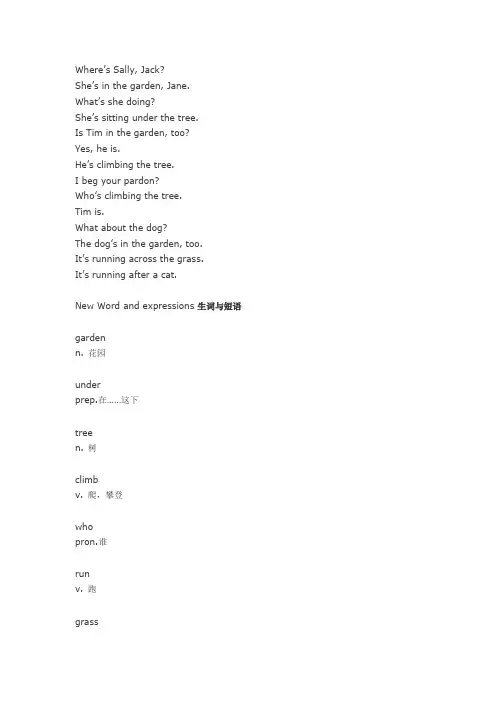
Where’s Sally, Jack?She’s in the garden, Jane.What’s she doing?She’s sitting under the tree.Is Tim in the garden, too?Yes, he is.He’s climbing the tree.I beg your pardon?Who’s climbing the tree.Tim is.What about the dog?The dog’s in the garden, too.It’s running across the grass.It’s running after a cat.New Word and expressions 生词与短语gardenn. 花园underprep.在……这下treen. 树climbv. 爬,攀登whopron.谁runv. 跑grassn. 草,草地afterprep.在……之后acrossprep.横过,穿过catn. 猫本文参考译文简:杰克,萨莉在哪儿?杰克:她在花园里,简。
简:她在干什么?杰克:她正在树荫下坐着。
简:蒂姆也在花园里吗?杰克:是的,他也在花园里。
他正在爬树。
简:你说什么?谁在爬树?杰克:蒂姆在爬树。
简:那么狗呢?杰克:狗也在花园里。
它正在草地上跑,在追一只猫。
【课文】JEAN: Where's Sally, Jack? JACK: She's in the garden, Jean. JEAN: What's she doing?JACK: She's sitting under the tree. JEAN: Is Tim in the garden, too? JACK: Yes, he is.He's climbing the tree. JEAN: I beg your pardon?Who's climbing the tree? JACK: Tim is.JEAN: What about the dog?JACK: The dog's in the garden, too.It's running across the grass.It's running after a cat.【课文翻译】琼:杰克,萨莉在哪儿?杰克:她在花园里,琼。
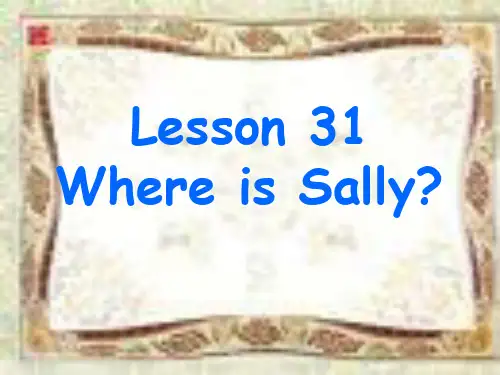
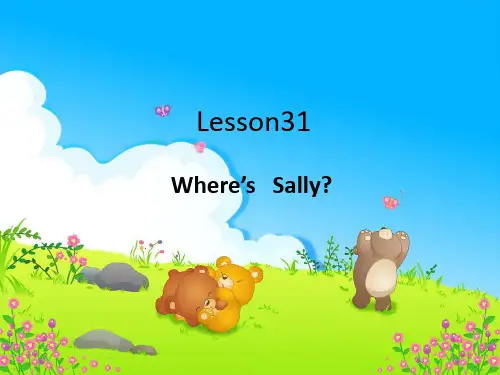

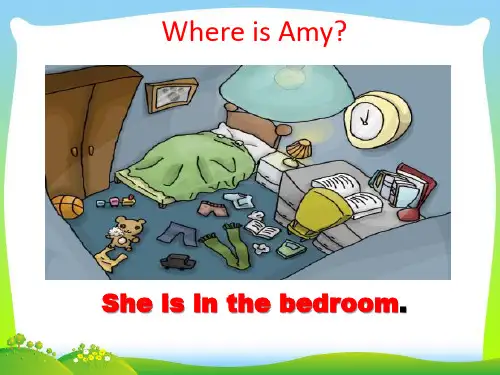
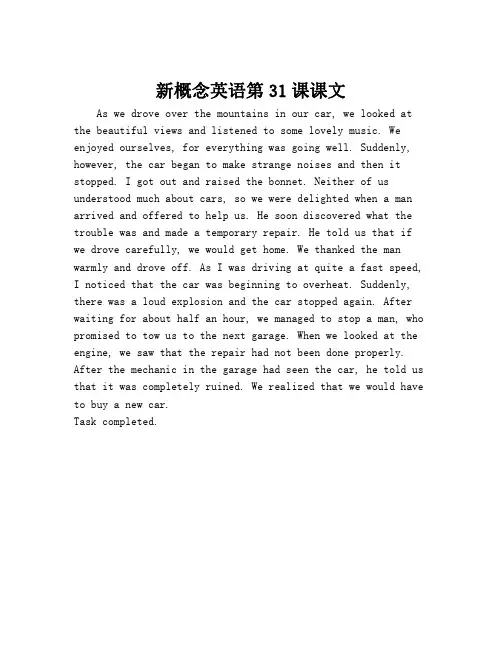
新概念英语第31课课文As we drove over the mountains in our car,we looked at the beautiful views and listened to some lovely music.We enjoyed ourselves,for everything was going well.Suddenly, however,the car began to make strange noises and then it stopped.I got out and raised the bonnet.Neither of us understood much about cars,so we were delighted when a man arrived and offered to help us.He soon discovered what the trouble was and made a temporary repair.He told us that if we drove carefully,we would get home.We thanked the man warmly and drove off.As I was driving at quite a fast speed, I noticed that the car was beginning to overheat.Suddenly, there was a loud explosion and the car stopped again.After waiting for about half an hour,we managed to stop a man,who promised to tow us to the next garage.When we looked at the engine,we saw that the repair had not been done properly. After the mechanic in the garage had seen the car,he told us that it was completely ruined.We realized that we would have to buy a new car.Task completed.。


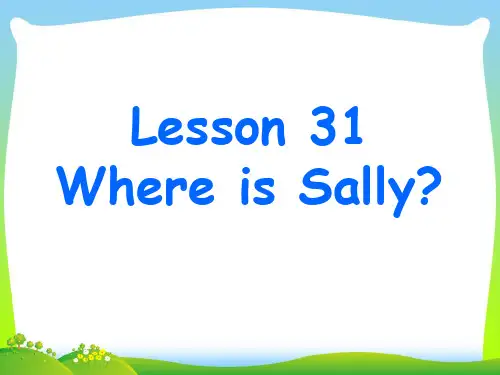
新概念英语口语宝典第一册第31课:布置房间 Lesson 26 Home Decoration
第二十六课布置房间
A:How are you going to decorate the house?
A:你想怎么装修你的房子?
B:I'm going to paint the walls white.
B:我要把墙面涂成白色。
A:What about the floor?
A:那地面呢?
B:I have bought some brown carpets. They are very hard wearing.
B:我买了些棕色的地毯,它们很耐磨。
A:It sounds lovely. I am looking forward to seeing them finished.
A:听起来不错。
我真盼着早点儿装完。
B:So am I. Tm eager to fix my room.
B:我也是。
我着急去整理我的房间。
A:Can you recommend a suite for my living room?
A:你能为我推荐一套起居室的成套家具吗?
B:Maybe you would like this suite.
B:这套怎么样?
A:what is it made of?
A:是什么材料的?
B:Mahogany.
B:红木。
A:The table may be a bit too large to fit my living room. A:桌子放在我的起居室太大了。
B:I'm afraid this is the best we've got for you.
B:恐怕这是我们能为你提供的的。